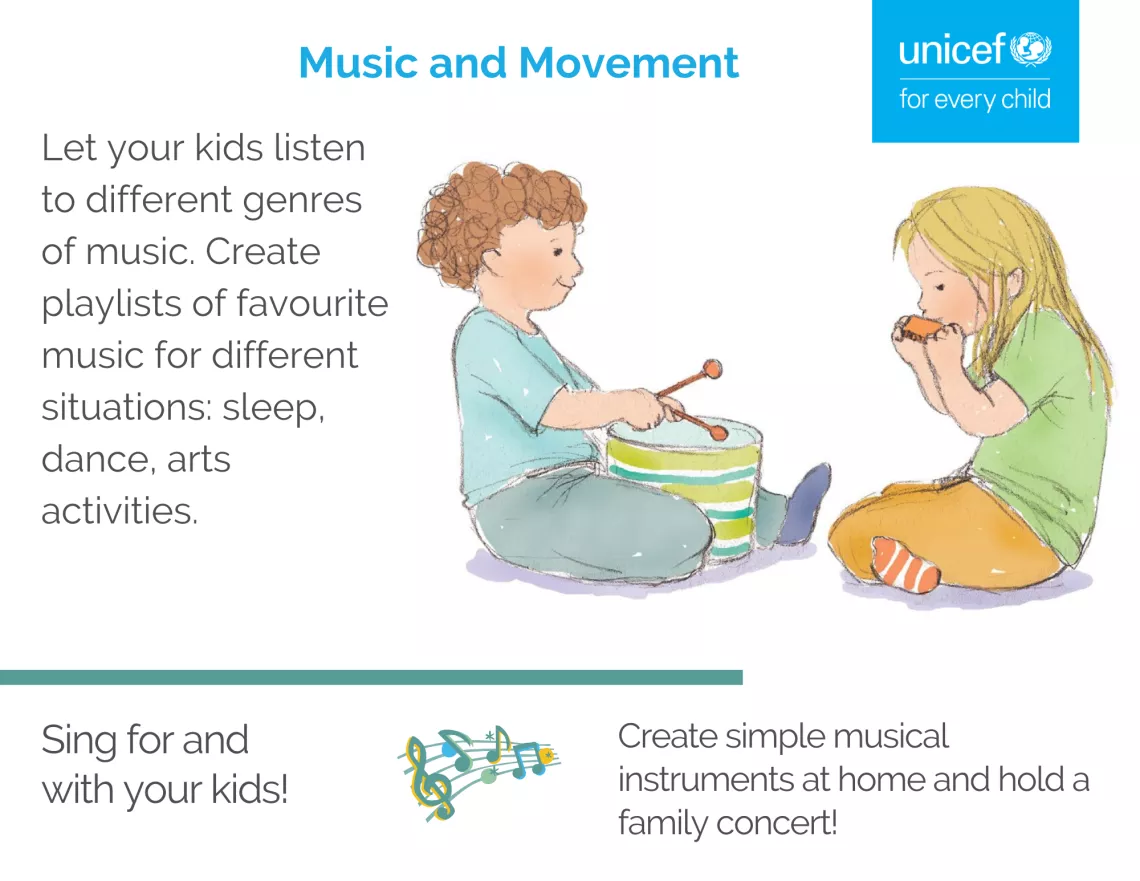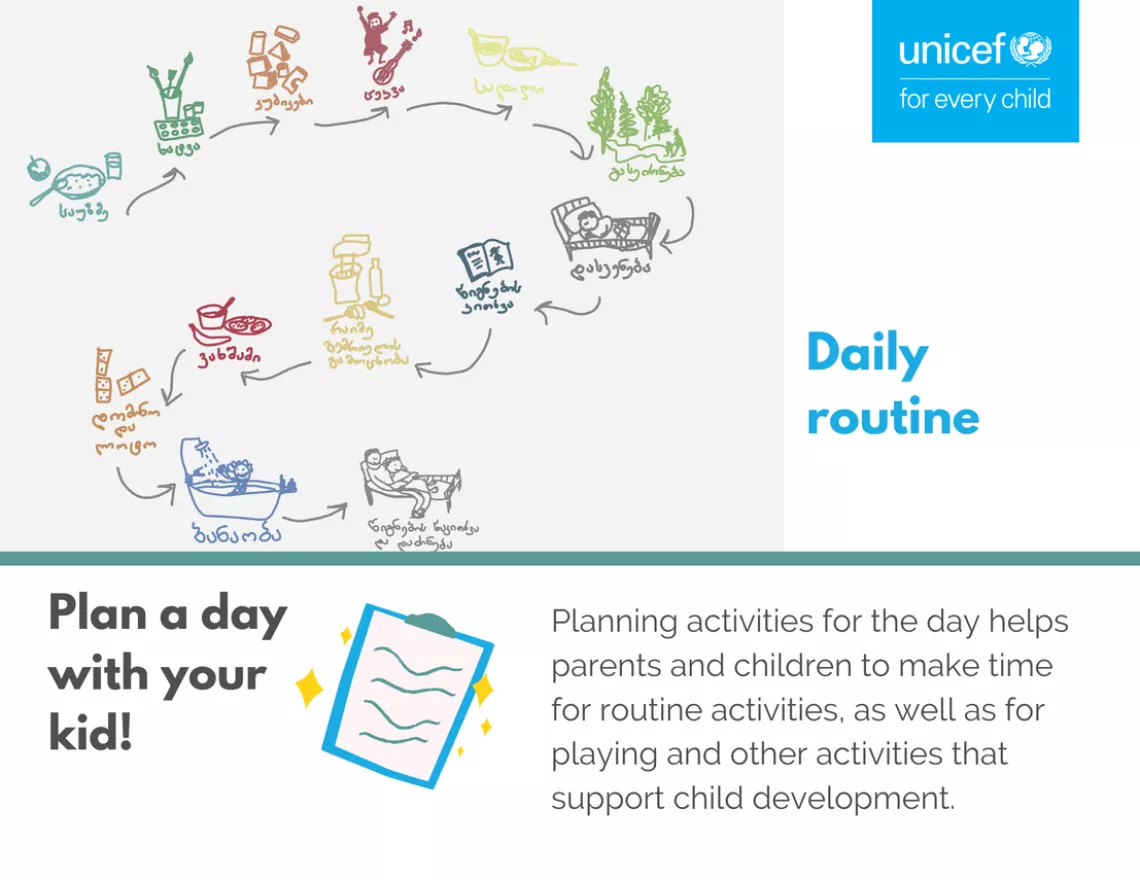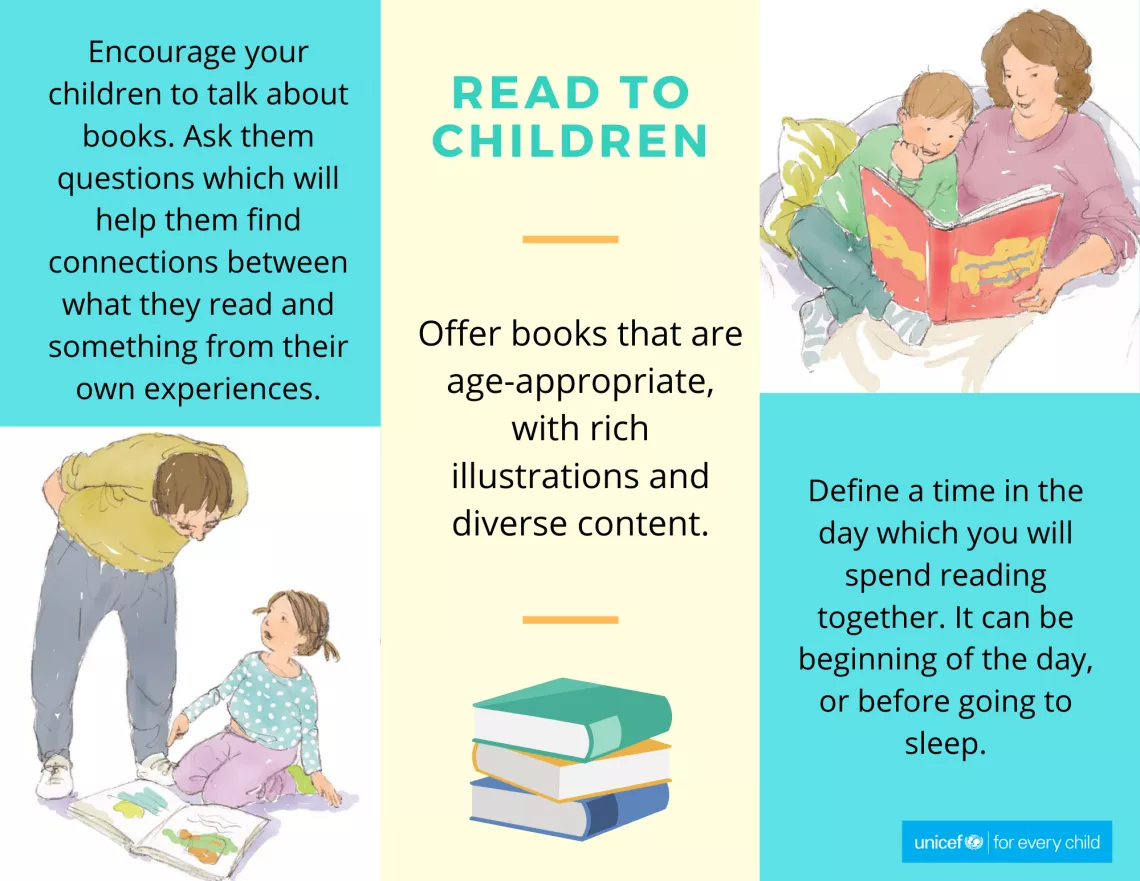How to engage with and support your children at home during pandemics
Guidance for Parents of Young Children

- Available in:
- Română
- English
Recent events happening as an outcome of the coronavirus disease 2019 (COVID-19) outbreak have changed daily realities of many children and parents. As more families face social distancing, self-quarantine, and school and work closings it’s possible to feel stressed. Stress is arising not only out of concerns over health issues, but also out of dealing with the new reality of suddenly being at home for many days with children whose daily routines have been severely affected. Children may struggle with significant adjustments to their routines (e.g., school and child care closures, social distancing, home confinement), which may interfere with their sense of structure, predictability, and security. Home confinement and lack of contact and play with their peers makes children anxious. Children might find it difficult to understand what they are seeing online or on TV – or hearing from other people – so they can be particularly vulnerable to feelings of anxiety, stress and sadness. Lack of opportunities for outdoor play and activities might make them more restless and frustrated adding to the stress of their parents.
This guidance should help you plan and have some ideas on how to organize time, how to talk to your children and help them thrive even in the given circumstances.
Create and maintain daily routines
- Create a daily schedule together with your child. Draw the parts of the schedule together to represent each activity and include a general timeline for when each activity shall happen
- Organize a schedule in line with a daily routine child had in a preschool before the new situation (meals, play times, breaks for snacks and naps, balanced combination of physical activities and quiet time activities and learning)
- Include children in daily chores and household activities by specifying their particular task or a role (setting the table, watering plants, folding clean clothes etc.)
- Include regular “whole family” activities into the schedule – enjoy in joint meals or play and recreation activities. Try to keep us with the schedule as consistency helps young children feel secure and safe.
Practice your own self- care
- Make time for the short breaks from the family (solo walks, a bath, or a phone call with a friend) or use the quiet time period to relax and rest
- Parents are humans as well and self-care increases your ability to handle stress and be able to provide adequate support to your children
- Find time to nurture your partner relationships and be supportive of each other
Have ready ideas for play and learning activities
- Make a list of indoor and outdoor activities that can be practiced as circumstances allow
- Balance physical activities (outdoor activities like running or ball games or biking or indoor activities such as dance, yoga, building forts of cushions and boxes) with sedentary activities (drawing and coloring, story-telling, engaging in songs and nursery rhymes, puzzles, games etc.) and some quiet time periods (resting, reading together)
- Allow your children to choose activities they would like to pursue and don’t forget that young children have short attention span and might lose interest quickly
- It’s more important to keep the learning positive and fun than to worry about maintaining academic skills for preschool-aged children. Enjoyable experiences such as reading together, storytelling, and games are fun ways to keep learning going without putting too much stress on young children.
- Here is the list of activities and games to give you some ideas




Appropriate screen time and content
- Protect children from inappropriate TV/media content that can make them more worried and stressed. Limit the amount of COVID-19 news you consume as a family, especially in front of young children. Don’t assume they are not listening, even if they are not actively watching
- Define the screen time for your child, build into daily schedule and make sure the content is appropriate. If young children are left alone in front of TVs or digital screens for a substantial time, this can impede their cognitive and social-emotional development
- Children learn best through human interaction – watch shows together and talk about the content
- Use technology to compensate social distancing (skype, Zoom, whatsapp) and reach and talk to friends and family
Practice positive parenting approaches
- Prolonged home confinement presents an opportunity to increase bonds with your child through joint activities and time spent together
- Remember that this situation is equally difficult for children and that they react in line with their age and development level. Try to have realistic expectations of your children that will help you constructively address undesirable behaviours (excessive crying, colic, tantrums, and sleeping problems, feeding problems, etc.)
- Find time to nurture your partner relationships and be supportive of each other, role model behaviour for your children
- When faced with undesirable behaviours opt for Non- violent methods of disciplining (redirect attention, pay attention to positives, restructure environment, use a time-out procedure, reward positive behaviour etc.)






